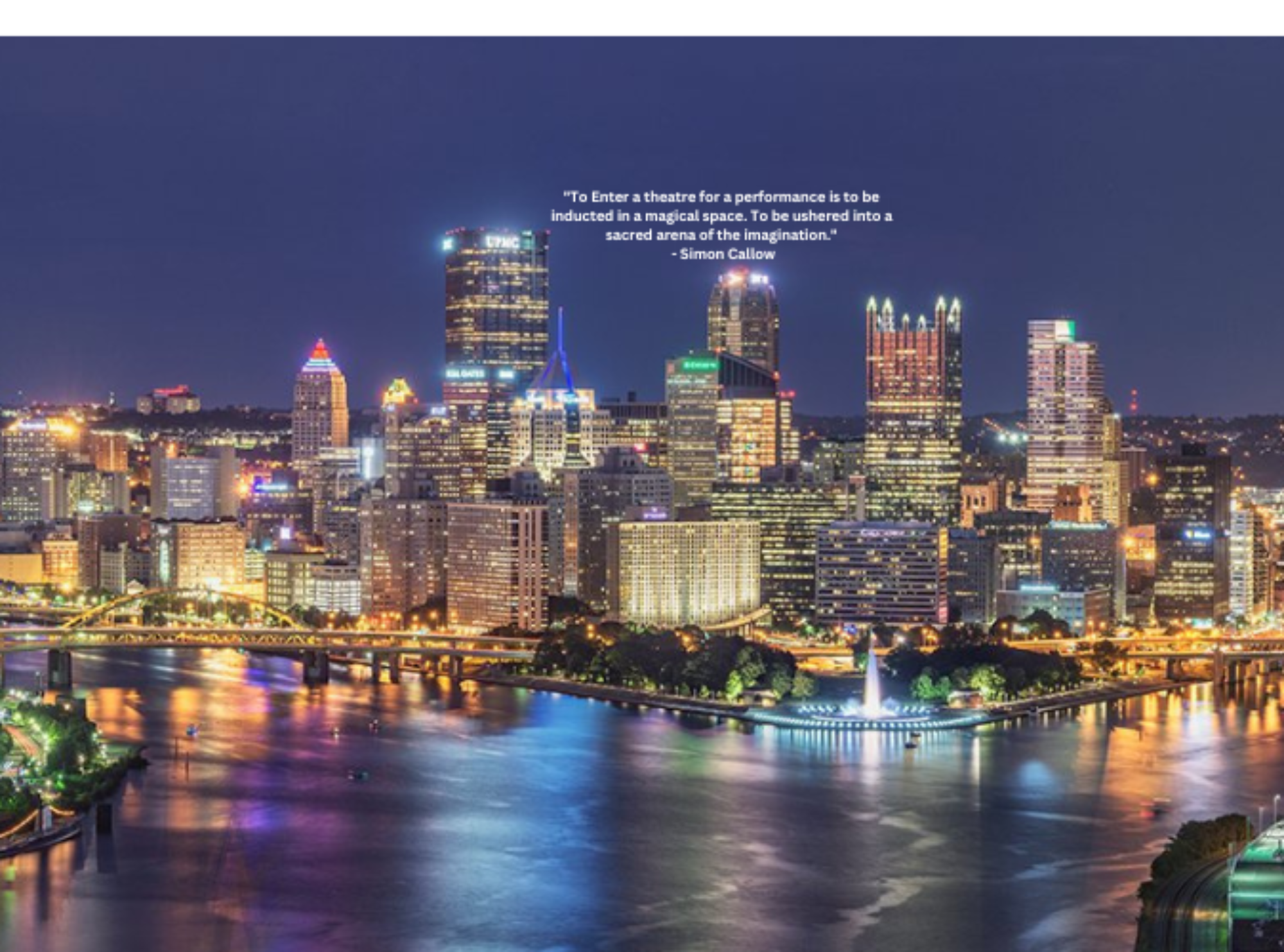

by Mike “Buzz” Buzzelli, ‘Burgh vivant.
Forty years ago, the Pittsburgh Public Theater mounted their first production. It was Tennessee Williams’ iconic play, “The Glass Menagerie.” In the Seasons of Legends, the Public has returned to the classic tale.
The play is old but not dusty. It was first produced in 1944, and is set slightly earlier, in a pre-war St. Louis. Williams by way of narrator Tom Wingfield (Fisher Neal) calls “The Glass Menagerie” a memory play. Though written as a whiskey-soaked memory, here, it’s more of a misty water-colored one. Tom is Tennessee in many ways. The story skims along the edges of his autobiography, but doesn’t plunge into the darkest places.
The action takes place in the apartment Tom shares with his demanding mother Amanda (Lynne Wintersteller) and broken sister Laura (Cathryn Wake).

Amanda is a bellicose harridan, intense rages bubbles under her genteel, Southern charm. It’s easy to see that her anger is sublimated fear; she lives in constant terror, fretting about the fates of her fractured family. Her deepest desire is to marry off the aforementioned damaged daughter.
Laura is a tragic figure, paralyzed by her introversion, with a stagnating inferiority complex that has isolated her from the outside world. She retreats into a fantasy world constructed around a collection of crystalline figurines, the eponymous glass menagerie. Laura is delicate and fragile; like the creatures of her collection.
Tom is a restless soul, the sole provider and breadwinner for his mother and sister. He is trapped by the confinements of his family, struggling for sanity while slaving away in a shoe warehouse. He can’t take the claustrophobic living conditions and escapes nightly to the movies, bars, and God-Knows-Where-Else. Under pressure from his mother’s constant pleas to marry off his sister, Tom relents and brings home a gentleman caller for dinner.
Things get even more complicated when the aforementioned guest, Laura’s high school crush, Jim O’Connor (Jordan Whalen), arrives for dinner. It is a tragic pairing. Well. It’s supposed to be.

“The Glass Menagerie” is a simply constructed play, a mother wants to marry off her daughter, while her son struggles to find his own way in the world, but it is the depth of the characterization that has kept “The Glass Menagerie” vital and relevant. Though, this is the happiest version of “The Glass Menagerie.” Vitriolic barbs are played for laughs, and the show skims the surface of earlier renditions.
The play is at its best when Neal’s Tom is narrating. Williams’ play is brimming with text and subtext. It’s a wordy play but it’s the words that aren’t spoken that are the most intriguing. Tom Wingfield’s life outside of the apartment is mostly for the speculation of the audience. Some of us speculated that his life was not unlike that of Tennessee Williams, a wild life indeed.
The backdrop, a cityscape etched in rough black lines jutting out of a twilight blue sky, is a work of art gorgeously crafted by scenic designer Michael Schweikhardt. At the Public, you can always count on their beautifully rendered sets to dazzle the eye (regardless of the content of the show). Luckily, they were working with a brilliant script and a solid cast.
But Wintersteller’s Amanda is almost too likable in this version. Her most vile moments are played for laughs. Amanda seems like she is both devoted to her children and repulsed by them, but here we see a softer side of the harpy. It’s an odd choice from director Pamela Berlin, who grounded the memory play in more of a happier reality. Still, Wintersteller is a talented performer.
It’s Neal’s Tom that steals the show. He is mesmerizing as the poet, spinning in the hamster wheel of his grueling nine-to-five, longing for adventure.
During Tom’s final monologue, a eulogy for the living, the audience is transfixed by the rhythm of his speech, hanging on every word. Then, Laura blows out the final candle and we are in darkness. When the lights are back up, the audience was on their feet, roaring with thunderous applause.
If you are looking for a lighter side of Tennessee Williams, this version is delightful. It has a superb cast and a beautiful set. If you’re looking for those dark, lonely places, you will have to seek out another production. Not all of us are afraid of the dark.

